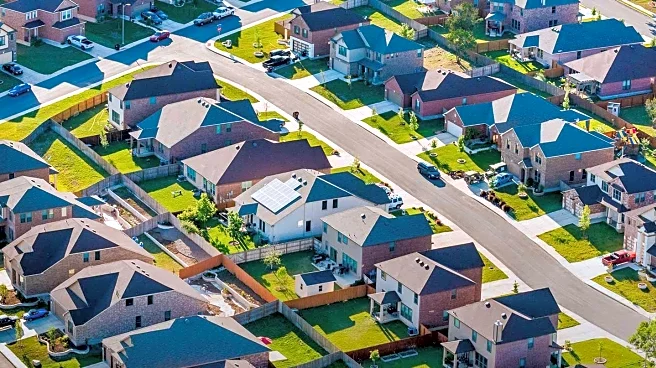What's Happening?
Cor van Deventer, director at VDM Incorporated, has provided advice on how homeowners can avoid legal disputes with neighbors over boundary walls and trees. As urban living intensifies, property owners often face issues related to overhanging branches, encroaching roots, or falling leaves that may cause nuisances to adjoining properties. Van Deventer emphasizes the importance of checking title deeds for boundary restrictions, which can vary depending on the suburb. He advises that property owners should ensure their trees do not infringe on neighbors' rights to enjoy their land. Legal disputes over such issues are common, but Van Deventer suggests resolving them amicably before resorting to legal action.
Why It's Important?
The advice from VDM Incorporated highlights the growing need for property owners to be aware of legal responsibilities and potential disputes as urban areas become more densely populated. Understanding boundary restrictions and maintaining good neighborly relations can prevent costly legal battles. This guidance is crucial for homeowners to avoid litigation and ensure peaceful coexistence with neighbors. The emphasis on resolving disputes amicably reflects a broader societal trend towards conflict resolution without legal intervention, which can save time and resources for all parties involved.
What's Next?
Homeowners are encouraged to proactively manage their properties to prevent disputes. This includes checking title deeds for boundary restrictions and maintaining trees and walls to avoid encroachment issues. Should disputes arise, Van Deventer recommends a cooperative approach to resolution, which can prevent escalation and reduce legal costs. As courts become more environmentally conscious, they may apply objective tests of reasonableness in future cases, weighing the preservation of trees against potential nuisances.
Beyond the Headlines
The advice from VDM Incorporated also touches on the legal and ethical responsibilities of property owners in maintaining boundaries. The courts' increasing environmental consciousness suggests a shift towards balancing ecological preservation with property rights. This development may influence future legal standards and practices, encouraging property owners to consider environmental impacts in their decisions.









